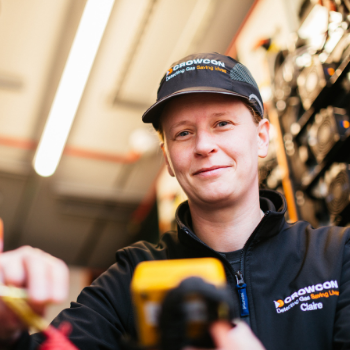Every day the need for energy is increasing as the global population grows and more demand is put on the world’s energy grids. This has resulted in a global shortage of supply and has made power cuts a more regular occurrence. We have faced volatile energy markets and supply squeezes for decades, so why is it biting now?
We are undergoing one of the largest energy transitions since the invention of electricity. For over a hundred years the world’s energy has been generated through burning fossil fuels. But in the last decade the demand for energy generated by renewable sources has surged, and energy infrastructure is still playing catch up. With the transition expected to take many more years, the world continues to rely on central grids and fossil fuels. Consequently, the energy crisis threatens to touch every corner of the global economy, with some industries already forced to reduce or even suspend production.
But what if you are a hospital providing critical patient care and any interruption to your power supply can mean the difference between life and death? Smart energy solutions provider Powerstar has developed technology that helps provide an uninterrupted power supply to life-critical facilities such as hospitals. Their battery energy storage units use renewable energy sources to generate electricity and stores it for when it is needed. If for any reason the grid suffers a power cut, they seamlessly connect to their storage unit.
However, a major challenge with battery energy storage is that batteries can emit toxic gases as a by-product of their operation. These are often difficult to detect as they are odourless and represent a potential hazard for the people maintaining these sites. That’s why Powerstar has teamed up with Halma company, Crowcon. Their gas detection technology, such as the Xgard, can detect hazardous gases before they become a problem. Crowcon’s technology is a vital safety mechanism that will help ensure battery storage units like these will remain safe as the world switches to cleaner energy.
 Claire is one of the Crowcon field service engineers maintaining this life-saving technology. She is passionate about her role and her contribution to maintaining Crowcon’s gas detection technology in these units. Highlighting the importance of the technology, she says: “This is unlike any job I have ever had. Knowing that what I do potentially helps save lives on a daily basis, make this so much more than just a job. There are so many gases that could be potentially lethal to anyone maintaining these units. It goes back to detecting gas and saving lives, and that is what we at Crowcon are good at”.
Claire is one of the Crowcon field service engineers maintaining this life-saving technology. She is passionate about her role and her contribution to maintaining Crowcon’s gas detection technology in these units. Highlighting the importance of the technology, she says: “This is unlike any job I have ever had. Knowing that what I do potentially helps save lives on a daily basis, make this so much more than just a job. There are so many gases that could be potentially lethal to anyone maintaining these units. It goes back to detecting gas and saving lives, and that is what we at Crowcon are good at”.


